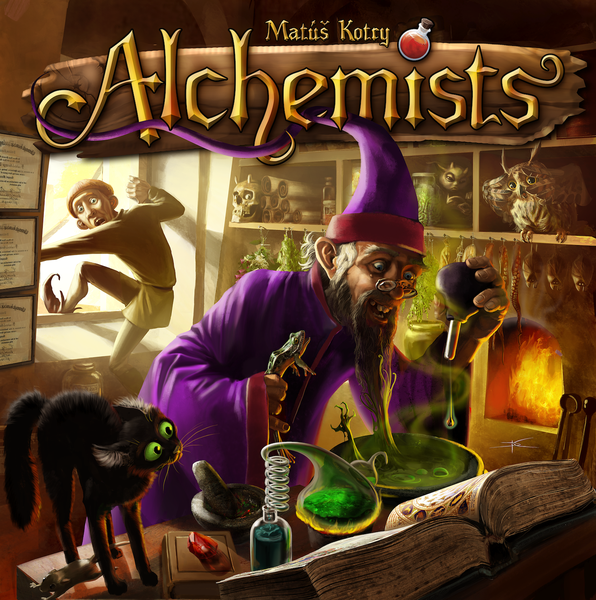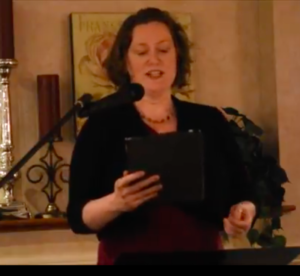Today we’re going to play with making your characters sound distinctive.
The Prompt
Write A Story With Lots Of Dialogue That Teachers Us About Your Characters
Continue reading “[Write On Wednesday] Your Character’s Voice”Today we’re going to play with making your characters sound distinctive.
Write A Story With Lots Of Dialogue That Teachers Us About Your Characters
Continue reading “[Write On Wednesday] Your Character’s Voice”Short stories don’t have a lot of space for non-main characters, but if you’re going to include a best friend or comic relief, make sure they earn their word count!

Write A Story That Gives Your Secondary Characters Something To Do
Continue reading “[Write On Wednesday] Secondary & Background Characters”For today’s Write on Wednesday writing prompt, I’m digging into the archives.
This writing prompt, from 2012, talks about how to use your character’s desires to power a story and contains important tips on how to keep your short story from become a barely-begun novel.
Write a Story In Which Your Character WAAAAAAANTS something
If you share you story somewhere (and here’s why you might not want to) post a link here so we can come and read it.
How is your writing going, now that StoryADay May 2019 is over? Are you ready to write a story today? Leave a comment!
Missed out on StoryADay May? Don’t worry, the next challenge is just around the corner. Sign up now.
I’ll send you a prompt like this, every day during the next challenge.
This week we all watched in horror as Notre Dame burned. It was a great loss for human cultural heritage and a personal wrench for many.
And it made me wonder about other stories we might tell.

Write a story from the perspective of a non-human character
Last week we wrote about connections. This week, an interconnected theme: support. We need it in our writing lives, and our characters are looking for it, in our stories.

Write A Story About A Character Who Needs Support
This month’s theme at StoryADay is about finding support in our writing lives, and that has me thinking about connection.
I have this thesis that writing is all about connections: connecting with another person (your reader)’s brain; connecting with the writers who inspired you; connecting with other people working in your genre; connecting with your past and future selves; connecting with the great web of human experience on this planet.
So today I want you to write a story that touches on some of these things.

Write A Story About Connections
If you share you story somewhere (and here’s why you might not want to) post a link here so we can come and read it.
Did you write today? How did you get on? Who did you write about? Leave a comment!
Original Photo by Bernard Spragg
This prompt was inspired by Jennifer Wortman’s Theories of the Point of View Shifts in AC/DC’s “You Shook Me All Night Long”

Write A Story Based on A Favorite Song
This prompt was inspired by Amy Silverberg’s story Suburbia! which you can find in The Best American Short Stories 2018
Write a story with some magical realism in it
This prompt was inspired by Kristen Iskandrian’s short story Good With Boys, which I reviewed in the Reading Room.
Write a story based on a trip you took in childhood
We’re all alchemists, here, turning an abundant resource (ideas) into something much more valuable (stories) and today i want you to include some alchemy in your story

Write a flash fiction story in which a character transforms something seemingly worthless into something valuable
This month’s focus is on Flash Fiction. Flash isn’t just short, it is urgent. And so is today’s prompt
Time’s Up
This week’s prompt was inspired by the flash fiction story Joan of Arc Sits Naked In Her Dorm Room by Rachel Engelman
Write a 750 word story featuring a character from history or mythology, but place them in a different era
Yesterday, I reviewed “Useless Things” by Ariel Berry, and it gave me the writing prompt for today’s Flash Fiction focused prompt
Write a story of fewer than 1000 words, that features a twist on a topic/event that might be seen as a disaster. Show us how your character pulls another meaning from it
Since everyone in my orbit is talking about it anyway, let’s write about the weather!

Write a story in an environment where the weather is so extreme that it shapes everything: actions, metaphors, hopes & dreams…
If you’re writing for publication, it’s important to be aware of lead-times, (i.e. the time between when an editor says ‘yes’ to your story and the date the publication goes live). They can be long, so if you’re writing a seasonal story, you need to be submitting months in advance. That’s why today’s prompt is for October’s National Adopt A Shelter Dog month. Write your doggie story today and start pitching it now!
Write a story featuring a dog
Have you ever been part of a Writers’ Group? There’s good (Solidarity! Feedback! Deadlines!) and bad (Jealousy! Bitchiness! Blowhards!). This week I invite you to write the story of a writers’ group.
Imagine a writer’s group. Write a story about one of their meetings (or a series of meetings
Go!
Photo credit: Ondřej Lipár
Ever been forced to be part of a group project? Ever joined a community group because you felt like you ought to? Ever been part of a voluntary group that you loved?
Today’s prompt encourages you to mine those experiences to create a story with an ensemble cast.
Write A Story Centered Around a Group of People Trying To Achieve One Goal
A new year is almost upon us. News sites and shows and all your favourite blogs are urging you to think about resolutions and goals and all the way in which Next Year will be Better than every other year that’s gone before.
Of course, that’s not exactly how it works, is it?
Write About A New Beginning
Leave a comment and let us know what you wrote about, and how it went.
Photo Credit. Dafne Cholet (CC BY 2.0)
 It’s a crazy time of year. You’re busy. You don’t have time to write. You certainly don’t have time to write anything good.
It’s a crazy time of year. You’re busy. You don’t have time to write. You certainly don’t have time to write anything good.
Great. Write something silly today. Write a story that can’t possibly be good because it came from a ridiculous prompt.
Use these words in your story:
Sea kelp, annointed, onion, flabby, twist, anachronistic, bing, fly, bauble, sun
Go!
Today’s prompt is a kind of carnival game, a tombola, a random lucky dip.
When I was a kid, I loved going to church bazaars and village fetes and Christmas Fairs.
Aside from scanning the cheap paperbacks and making a beeline for the bakery stall to see if Carol-Anne’s dad had made his famous tablet, I loved nothing more than the Lucky Dip.
Hand over a coin and plunge your hand into a huge barrel of cold, scratchy sawdust, trying not to get any stuck under your nails. Try not to think about the unfortunate association of the smell of sawdust with all the times somebody threw up at school and the janitor came by with his trusty bucket of the stuff. Rummage around until your fingers find the smooth crinkle of something wrapped in cheap, thin paper. Pull it out and lo! you have a gift. No idea what it would be. It might be something ‘meh’, or it might be something cool like a spinning top or a plastic penny whistle, or one of those little puzzles with the balls you have to roll around until they are all in the right divots; something I could play with all afternoon then shove it in a drawer and re-discover periodically over the next few years.
Whatever I got, it was something I hadn’t expected. And it was mine, all mine!
Below, you’ll find a lucky-dip of sorts, a prompt from the archives of over 500 prompts at StoryADay. It has been generated especially for you!
This is your randomly generated prompt: Continue reading “[Write On Wednesday] Roll Up, Roll Up, Roll Up!”
It can be overwhelming to sit down to write a story.
When you could write about anything it can become difficult to decide what to write about. These writing prompts are meant to put limits on your choices, in order to make your creative gears grind.
Write A Short Story That Features or Refers To A Holiday
Continue reading “[Write On Wednesday] Write A Holiday Story”
Don’t forget, the end of the month is approaching. It’s the perfect time to check out your writing commitments from last month, and start planning your commitments for December. There’s still time to do a few more things this month to reach your goals!
There’s a concept that there are avid readers and ‘reluctant readers’ (boys often get lumped into this category). It is pronounced as if it’s somehow the reader’s fault that they get bored with books. I firmly believe that anyone can be turned into a midnight-reading-story-zombie if we just find (or in our case, write) the right kind of story for that reader.
It might seem odd to challenge you to write a short story for someone who doesn’t want to read one, but this exercise will keep you focused on making your story as compelling, action-driven, and engaging as possible.
 The Prompt
The PromptWrite a story for a reluctant reader
Continue reading “[Write On Wednesday] Writing For Reluctant Readers”
There’s no feedback like the honest feedback of trying to hold the attention of a squirmy kid. This week I want you to try (or imagine) reading a story you’ve written to a kid under the age of 8. They are too young to worry about your feelings and they WILL let you know if the story is dragging! It’s great practice for holding the attention of former-kids too!
Write A Children’s Story
Continue reading “[Writing Prompt] Write A Children’s Story”
This evening I’ll be going out to another short story reading event, and it’s got me thinking about the audiences we write for.
Tonight’s story is adapted from one I wrote a while ago. I’m very happy with how it reads on the page, but when it comes to reading it aloud, I found I needed to cut a lot of description, tighten up the examples, lose some of the more languid language.
This month all the prompts will encourage you to try writing (or adapting) a short story with a specific audience in mind.

Write A Story Designed To Be Performed Out Loud
This month I’ve been encouraging you to write short stories in unusual forms and genres.
Since I’m spending today trekking back and forth to NYC to see the new Frozen musical with my kid’s school (I know, such a hardship, right?), I decided to urge you to write an outline for a musical today.
This is a bit of an odd one and if you’re not such a theater nerd as me, pick your favorite genre of movie, and imagine you’re writing an outline of all the sequences in your movie (there are probably about 8, with a big dramatic turning point at each quarter mark).
Write An Outline, or the Song/Scene List for a Dramatic Presentation
This isn’t going to read like a traditional narrative story
Imagine you’re looking at the program for a musical: it has a list of the scenes/songs you’re going to hear. Recreate that for your fantasy musical.
Here are some of the beats your two-act musical should hit:
So that’s it. Decide on a premise for your pretend musical. Figure out who your main character is, their desire, their obstacle and their antagonist. Then go to town creating song titles that fit the outline above. Have fun with this! Come up with a title for your musical and feel free to add notes to your ‘program’ with character names, suggestions for interval drinks and snacks, and perhaps even sponsorships by local businesses!
Go!
inspired by the fact that I’m reading at a Noir event tonight, I’m challenging you to write an atmosphere laden, tragedy-laced noir story today.
Write A Noir Story
Otto Penzler, owner of Mysterious Books and editor of the annual Best American Mystery Stories anthology, has this to say about noir.
“Most mystery fiction focusses on the detective, and noir fiction focusses on the villain…The people in noir fiction are dark and doomed—they are losers, they are pessimistic, they are hopeless. If you have a private eye, the private eye is a hero; and he’s going to solve the crime and the bad guy will be caught. That’s a happy ending, but that’s not a noir ending.”
Go!
It’s one thing to be funny in conversation with friends, but writing comedy can seem harder, somehow. Today we’ll try out some techniques to make our funny stories funnier.
This prompt is adapted from ideas in The Hidden Tools of Comedy: The Serious Business of Being Funny by Steve Kaplan, which was recommended to me by StoryADay veteran, Almo Schumann.

Give your character permission to go after their desire, no matter what the cost Continue reading “[Write On Wednesday] What A Laugh”
Today’s prompt kicks off a month of Write On Wednesday short story prompts that focus on odd or very specific formats of stories.
Remember when Elaine from Seinfeld got a job writing for the J. Peterman catalogue? Every entry was a tiny short story, usually ridiculous, about the fantasy character who would wear/carry each product.
That’s what I want you to try today.
Write an imaginary entry for a pretentious, high-end catalogue
Leave a comment and let me know the product you described and the character you chose. What did you discover in your writing today?
 This week, I’m recycling a writing prompt from a couple of years ago, all about slang, because it fits so wonderfully with this month’s theme of ‘backstory’.
This week, I’m recycling a writing prompt from a couple of years ago, all about slang, because it fits so wonderfully with this month’s theme of ‘backstory’.
(Also, because I’ve been on vacation and …)
Invented languages, or slang, are wonderful ways of establishing culture in your novel and of making sure your dialogue feels like dialogue and not ‘speechifying’.
I talked about this on the podcast recently. Check it out.
Read the full prompt here, then come back and leave a comment to let me know what you think. Did you read the linked article? Did it spark any ideas for you?
This month I’m giving you prompts that work in different ways to support your long-form fiction/novel writing. This week we’re looking at the micro-cultureS in your novel’s world.
Write a story that explains how the culture of your novel’s setting evolved
Photo credit: Eva Rinaldi
Have I I convinced you to dig into your novel’s backstories yet? Leave a comment to let me know what you’re thinking and what you’re writing.
This month I’m giving you prompts that work in different ways to support your long-form fiction/novel writing. Today’s prompt digs deep into your protagonist’s past.
Photo credit: GôDiNô
Write the story of the childhood event that scarred your character
Go!
Photo credit: GôDiNô
What did you write about? Leave a comment!